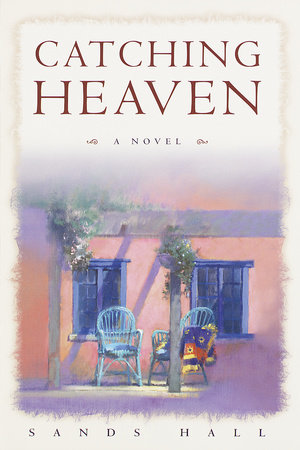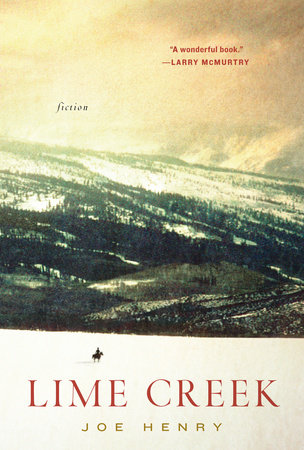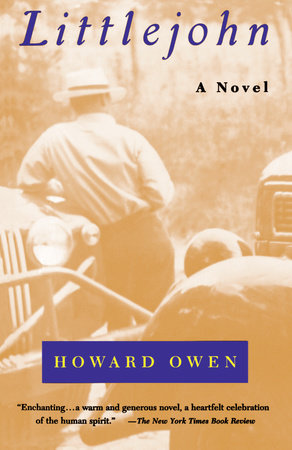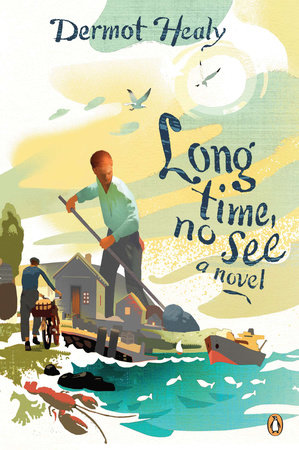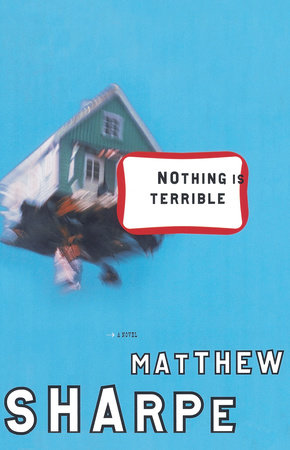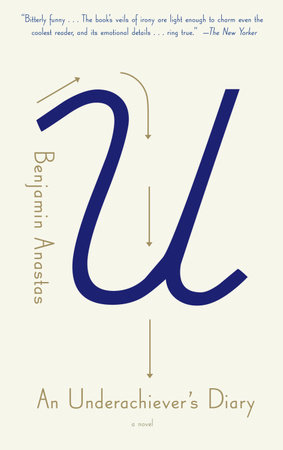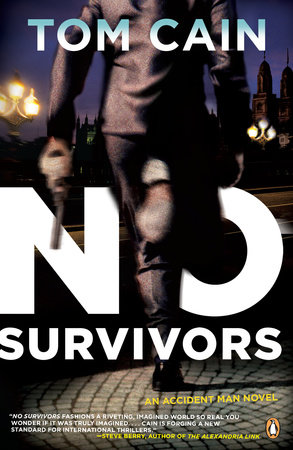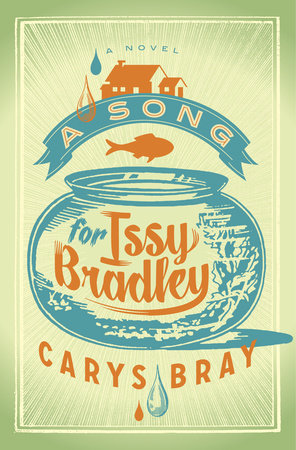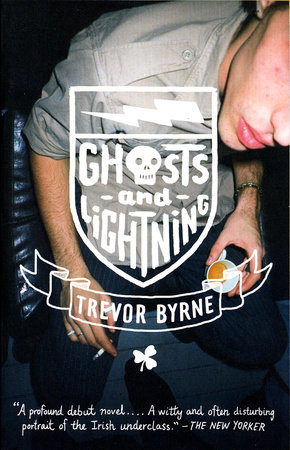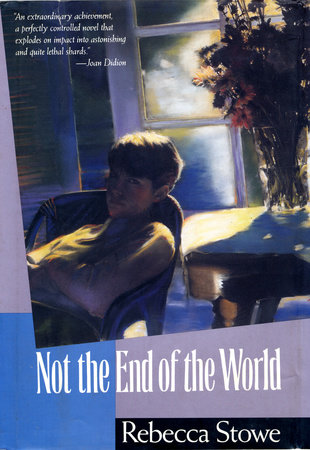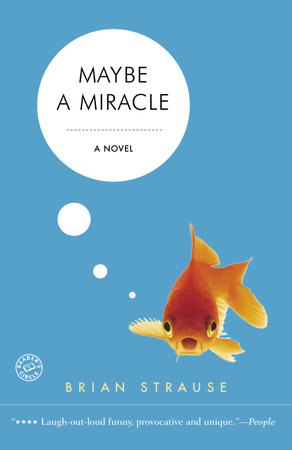Author Q&A
A Conversation with Sands Hall
Karen Joy Fowler is the author of two short story collections and three novels, the most recent being Sister Noon.
Karen Joy Fowler: Among the most memorable things in your book are
your characters, including Maud’s acting teacher, Nikos. About a third
of the way into the novel, he has a tirade about Chekhov. "Americans are
addicted to plot!" he says. "Chekhov knows that character is plot." Can
you talk about this in relation to your own book?
Sands Hall: Someone once told me that Chekhov gives his characters profound needs and complicated objectives, and that’s what creates the story. I chose to
believe in this idea, because I didn’t start writing the book with much
of a plot in mind. I had Maud with her needs, and Lizzie with hers, and
then Jake emerged, and then Jeep and Driver, etc., each with their own
set of needs. When an actor prepares to play a character, they ask,
"What’s my objective? Why do I want that; why do I want that now?" I
thought if I kept asking myself those questions as a writer, and if I
made the needs of my characters large enough, the plot would emerge.
Which is exactly what happened.
It’s such a complicated DNA-like helix, those two: plot, character–which comes first? I tend to vote for character because it worked for me, and perhaps because I like reading those sorts of novels.
By putting Maud’s memory of acting class at that point in the novel, I hoped to ask, or allow, the reader to question something about creating a character, and, as far as that goes, to question what goes into creating a plot. As a culture, we are addicted to plot–which usually means that the life we’re reading about or
watching needs to get complicated. I remember watching the movie Rob
Roy, when the nice young man is heading into the dark wood, bringing the
bag of silver home to Robbie. The music is somber and scary–everyone in
the audience knows he’s going to be set upon by the bad guy–and I
hunkered down in my seat and whispered, "I hate plot." I don’t, of
course. What I hate is watching people get killed. But Robbie needed
that money desperately, and that excellent movie would not exist if he’d
managed to get hold of it only thirty minutes into the story. So: Need.
KF: With your three point-of-view characters, you managed a very
neat–well, dichotomy would suggest two; what’s the word for
three–trichotomy? Maud is an actor. Lizzie is a painter. Jake is a
singer-songwriter.
SH: I wanted to talk about art, and its place in our lives. Part of Maud’s grief–what’s driving her–is that she has no children, and of course here she is involved in this transient art form. Acting, like dance, like any live performance, is gone the moment it’s created. Maud understands that she will leave nothing tangible behind to show her passage through the world. Whereas Lizzie not only has children carrying on her very blood, she has her paintings: objects one can
touch, hang on a wall.
KF: And Jake?
SH: Also a performer, his art disappears the moment it’s spun into the air. But music can be recorded in a way that a live stage play can’t, and of course his lyrics, written down on paper, form a tangible something he can carry with him. He bridges the gap between the sisters, literally, and figuratively.
KF: What Maud does in the outside world affects her interior life, and Jake
is just the opposite: everything that happens to him is fuel for his
songwriting. But I didn’t see the impact of Lizzie’s life on her art, or
vice versa.
SH: Interesting observation. One of the things I tried very purposefully to show is that Lizzie, especially in comparison to Maud, isn’t prone to self-reflection. I tried to pull out of Lizzie’s language– her dialogue, her thought processes–any figures of speech. She doesn’t think things are like other things, and she speaks in simple sentences–until the night she’s driving home from spending the night
with someone whose name she can’t remember. Then she finally allows
herself to mentally explore that complex, underwater metaphor of her
life. Maud’s thought processes are more Catching Heaven complicated,
down to thinking in semicolons. She connects so much more than Lizzie
does. It’s her personality and it’s also part of the career she’s
chosen.
Lizzie disdains Maud’s approach to the world, her philosophy
that everything is connected to everything else–because she can’t find a
parking spot, she shouldn’t have moved to Marengo, that sort of thing.
And part of Lizzie’s journey is that she finally begins to realize that
she needs to connect, that connections exist. She is as obsessive about
not looking beyond the surface of her life as Maud is about searching
for meaning. Lizzie’s paintings may be a reflection of that–are they
turned into greeting cards because they are pleasing, but ultimately
surface portraits? Her art is a two- dimensional representation of the
world, while Maud’s art demands, by its very nature, three-dimensionality.
KF: Like Maud, you are an actor. You’re also a director and a playwright. I’ve always thought it would be wonderful to hear someone speak lines that I’d written. You don’t get that thrill when you write a novel.
SH: It’s tremendously satisfying to be a director, an actor, an author, and a playwright, and to utilize those very different approaches to a given piece of writing. It can also be a bit schizophrenic. A playwright is a bit like a wheelwright–a putter-together-of-things. But author implies authority. As Richard Ford has said, an author "authorizes" his writing to go out to the world.
And it is a thrill to hear your words spoken aloud. To see those black
words on white paper manifesting not only into an active scene, but
taking place in a room like the one you described, with lights and
costumes similar to those you had in mind; perhaps a little
underscoring under the dialogue to emphasize the mood . . . It can be
exhilarating. Except when it sends you back to the computer for a
thorough rewrite. Hearing one’s words aloud is a great lesson in
economy.
Traditionally there’s been great respect for the playwright,
but this is changing, largely because of the attitude in Hollywood,
where wordsmiths are considered dispensable and changeable. The
screenwriter is often seen as a hired hand–not really an artist. It’s
dreadful. There’s a light bulb joke that sums it up:
Q: How many screenwriters does it take to change a light bulb?
A: Does it have to be a light bulb?
In film, the director is considered, ultimately, to be the author of a movie, and unfortunately that mentality is working its way into theatre. The hierarchy is very complicated and very much in flux. I’ve been fortunate to work with people who understand and appreciate the role of the playwright, and while there’s been tricky territory to negotiate, I’ve gotten to see the plays as I imagined them–in addition to all kinds of wonderful stuff I didn’t, I couldn’t have imagined. I’m not a set designer, or a costume designer, or a lighting designer, and
each of these, and many other elements, including of course the actors
and director–not to mention publicity, box office, ushers!–are essential
to a piece of theatre. Theatre is collaboration. It’s amazing how rarely
we come in over-budget, and that we always open on time. You must be
willing to accept, change, alter, and admit that someone else’s idea
works better than yours. It’s the free-flowing, dynamic nature that is
at the heart of the art.
Like Maud, I don’t have children, and theater is a large part of what I do. Some costume renderings, photographs, and a collection of posters are all the proof I have of a lengthy, satisfying acting career. Being able to hold a published book in my hands is a profound experience. I’ve started to collect old books–I
have a few that are over one hundred and fifty years old, and of course
there are volumes far, far older than that. Those words, and therefore
that author, is still with us in those sometimes brittle pages. As
usual, Shakespeare says it well:
"So long as men can breathe and eyes can see
So long lives this, and this give life to thee."
He’s talking about a sonnet, of course, and both he and the inspiration for the
poem, whoever he or she may be, are long gone. But the words keep both
the author’s ideas, and the author, alive. It’s so simple, and so moving
a thing.
Maud’s journey is to face that she will leave nothing behind,
and that, in fact, no one really does. It’s the realization she has when
she’s holding Jeep, who’s cried herself to sleep: nothing is ever going
to fill the vacuum, it’s always there. All experience is just a breath,
and then it goes. And that’s the empty space of theater, too. It comes
from a bunch of black marks on a page, and no matter how wonderful,
high-tech, long-running a production may be, when it closes, it
disappears into that same place.
KF: Speak a little to the issue of family. There’s Maud and Lizzie, their parents, Lizzie’s children, even Jake and his sister, but with Jeep, and Sam and Driver, something bigger seems to be going on.
SH: I’ve always loved Thanksgiving more than any other holiday, because it’s the time when family as we know it, expands. Often enough, in my peripatetic life, I’ve been the orphan invited to someone’s table, and those are invitations I make certain to extend to others if I can. Family, especially in our current society, is so much bigger, looser, than the blood ties that traditionally compose
it. Sam is the father Lizzie’s girls aren’t otherwise having. Jeep is a
sister, a cousin, and a daughter. Deprived of a decent mother, she looks
for one in Lizzie. Driver has to remove the chip imbedded in his
shoulder, but he finds his place in the Lizzie brood as well. And the
idea of a clan–a group of people that don’t know you but take you in if
you’re blood–has always fascinated me. Sam won’t recognize his clan, but
for better or worse, they come and find him when they discover they’re
needed. Maud realizes that theater is a clan.
The names for Driver and Jeep came to me in roundabout ways, but I kept both of them because I wanted to layer in the transitory nature of our society. We’re always on the move, as Maud is when the story begins. But when, in the second
chapter, we move to Lizzie’s world, everything is embedded in the earth–her studio, once a trailer; Sam’s living quarters, once a caboose; even the engine Sparky has left in her driveway is moldering in the dirt. She’s that settled. Whereas Maud is on the move–at least when she arrives in Marengo.
KF: Tell us a little more about Marengo and Marengoing, and what you think the town brings to the book.
SH: I wanted a place that was a frontier to some degree–even though Maud moves east from her west to get to it. I wanted to create a town that would convey a mythologized West–that demented designer’s vision of women in the 1890’s at the Red Garter, for instance. A world where you might or might not find your gold.
KF: At the very least it’s your second chance.
SH: Or your last chance. My characters gather in Marengo for their
various reasons. They come to this place where maybe dreams happen
and maybe they don’t, or maybe there’s the discovery of a
dream you didn’t know you had. I went ’round and ’round about
keeping the name Fable Mountain, but in the end, I left it. I
wanted to alert the careful reader to the idea that this was a fabulous
place.
KF: What does it mean to be a western writer as opposed to an eastern
writer?
SH: I’d be honored to be considered a western writer, but beyond this
novel, and my play Fair Use, which does tell a large western story, I
don’t yet know if the West will remain my territory. I suppose the
West brings up issues of space. How to inhabit the land, how to
tend it. And, I suppose, issues of the original inhabitants of this
continent, Native Americans. As well as the species we’ve succeeded
in eliminating from the planet in our greed. Our history there is so foul I can barely stand to look at it.
But foul as it is, and however much we’ve raped the land, built
dams in the middle of Eden, and stolen water from here to keep
power going there–we all rest on the fact that these things were
done. We have and rely on our electricity, and our computers; we
relish our warm houses; we depend on our roads. I suppose being a
western writer means taking on the uses and abuses of living on
this planet. How can we be responsible inhabitants of the planet
earth?
KF: Do you miss the acting scene in Hollywood that you, like Maud,
left behind?
SH: No. I suppose I’m sorry I didn’t succeed at something at which I
worked so long and hard, but it was good to realize that it’s theatre I love, and not the world Hollywood surrounds it with. I have friends who do very well in that environment, but I was intimidated by the emphases: to be pretty, to wear make-up all the time (you never know who you might run into), to have the right
clothes, to be thin. I’ve joked that I left Hollywood because I
couldn’t bear to wear nylons, but it’s partly true. I hated feeling
like a sausage, squeezed into a casing–and I suppose to some degree
that’s how I felt psychically.
And I’ve always had an odd relationship with television. If you
don’t get into movies in Hollywood, you’re doing television–if
you’re lucky. I grew up in Squaw Valley, in the Sierra Nevada, and
at that time it was hard to get any reception over those high
mountains. In addition, my parents always urged us towards books.
We were not, to put it mildly, encouraged to watch television. I
never got in the habit. When I played the character Maya, years
ago, on the soap opera, The Guiding Light, I never watched myself
on the show. At the time, a VCR was beyond my limited budget. I
know it sounds odd, but it had been drummed into me that watching
TV in the middle of the day meant that one’s day–one’s life–
was at a very low ebb. You were on the way to the devil–heroin
was next. My mother and father had a wonderful time watching
me–I was on the show for about six months, on and off–but I
couldn’t bring myself to do it. And there was so much I could have
learned.
It took leaving Hollywood when I was in my late thirties, getting
one MFA from the Writers Workshop, and a second one in
Drama, to reengage my love of theatre. I was given the opportunity
to realize why I’d wanted to do it all my life. This novel became,
among other things, a way for me to communicate that.
